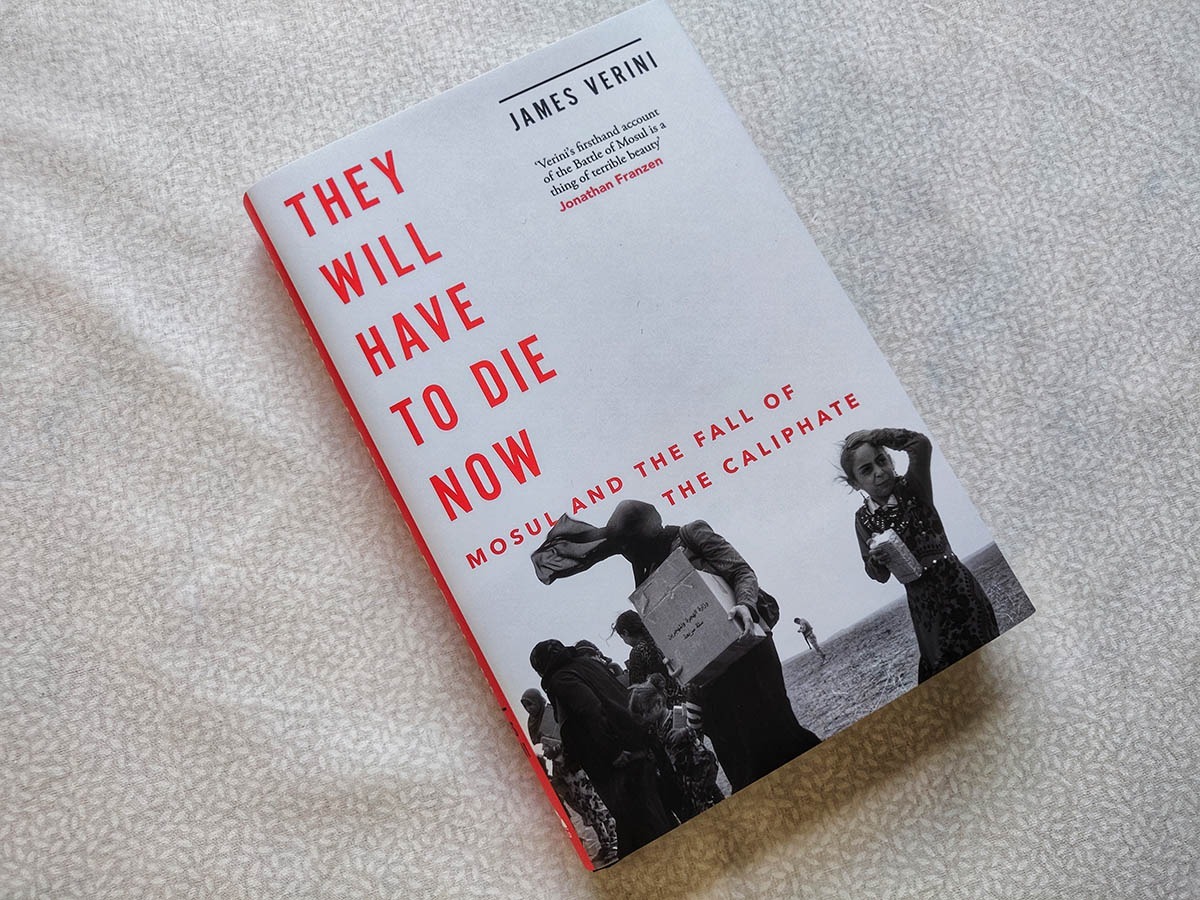
This article is a preview from the Spring 2020 edition of New Humanist
They Will Have to Die Now: Mosul and the Fall of the Caliphate (Oneworld) by James Verini
It is still difficult to overstate the sheer weirdness of the capture of Mosul by Islamic State in June 2014. The jihadist guerillas had taken plenty of territory by then, but most of it was desert, pocked by a few relatively small and dishevelled urban centres in Syria. Mosul was a decent-sized city, probably the second biggest in Iraq, with a population north of two million. All such analogies are inevitably imperfect, but it wasn’t much less extraordinary than, say, the IRA circa 1975 seizing Birmingham.
In late 2016 Iraq’s military, abetted by American and other allies, embarked on operations to take Mosul back. Writer James Verini was with them as they did it. The resulting book feels like both an ageless classic and a contemporary snapshot. As Verini notes, this was far from the first battle to be fought over Mosul – Highway Two, which today links Mosul to Erbil, has been marched by the legions of Assyria, Babylon, Alexander The Great, Saladin and Suleiman the Magnificent, among many others.
And while technology has changed modern urban warfare in some respects, it has not much altered its fundamentals: someone still has to go into the city being contested and take every building, every street, every block. This is hazardous enough even when not fighting fanatics who are not overly concerned with whether they make it out alive, or how many people they take with them (Islamic State regularly insulated their positions with civilians, in the hope of forestalling airstrikes).
Verini identifies his motivations for covering the retaking of Mosul as “a certain guilt. Shame, even.” He is among the generation of Americans who arrived at adulthood just in time to see their certainties scattered on 11 September 2001. As a young reporter in New York City, Verini covered the destruction of the World Trade Centre by al-Qaeda – but was not, he writes, able to summon the nerve to follow the story to Afghanistan or, initially, to Iraq. But eventually he could find no other answer to the question “As an American writer of my age, how do you not face Iraq?”
This is – as it should be – pretty much the limit of any navel-gazing. Verini is very much not of that school of foreign correspondents who believe that the most interesting and important part of the story is that they personally are witnessing it, and deftly walks that fine line, inserting himself into the narrative only sufficiently to underpin his credentials as a witness. The story is that of the soldiers, and the city they are trying to recover.
Here, again, the key dichotomy of They Will Have to Die Now is apparent. Some of Verini’s observations are eternals of conflict – the fact that soldiers fight first and foremost for each other, rather than any flag or city, and their frequent grudging respect for their enemies. Summing up the view of Islamic State held by Iraqi troops, Verini writes, “Whatever else they might be – lunatics, halfwits, junkies, fake Muslims, pawns of the Saudis, of Washington, of Israel, there were as many theories as soldiers – the jihadis were not cowards.” And some of what Verini reports could not have been reported in any time but now: “As far as I could see, what knowledge the younger soldiers did have of Mosul and its history came from their cellphones, Facebook prophecies and WhatsApp conspiracy threads.”
The detail Verini captures would be of little use without the writing chops to convey them to readers. But Verini has an accessibly sparse and unfussy style, and alert antennae for the moments of bleak comedy that conflict furnishes. The Battle of Mosul was important and – for all the brutality Verini chronicles – necessary: it was the beginning of the end of the grotesque cult of Islamic State as a geographic entity. They Will Have to Die Now is no less a monument than it merits.

